第16章 CHAPTER IV MY JOURNEY TO THE WINTER-VELD(2)
We then struck more to the north towards our destination. As soon as they had gone I had out my map and searched it for the name old Coetzee had mentioned. It was a very bad map, for there had been no surveying east of the Berg, and most of the names were mere guesses. But I found the word 'Rooirand' marking an eastern continuation of the northern wall, and probably set down from some hunter's report. I had better explain here the chief features of the country, for they bulk largely in my story. The Berg runs north and south, and from it run the chief streams which water the plain. They are, beginning from the south, the Olifants, the Groot Letaba, the Letsitela, the Klein Letaba, and the Klein Labongo, on which stands Blaauwildebeestefontein. But the greatest river of the plain, into which the others ultimately flow, is the Groot Labongo, which appears full-born from some subterranean source close to the place called Umvelos'. North from Blaauwildebeestefontein the Berg runs for some twenty miles, and then makes a sharp turn eastward, becoming, according to my map, the Rooirand.
I pored over these details, and was particularly curious about the Great Labongo. It seemed to me unlikely that a spring in the bush could produce so great a river, and I decided that its source must lie in the mountains to the north. As well as I could guess, the Rooirand, the nearest part of the Berg, was about thirty miles distant. Old Coetzee had said that there was a devil in the place, but I thought that if it were explored the first thing found would be a fine stream of water.
We got to Umvelos' after midday, and outspanned for our three weeks' work. I set the Dutchmen to unload and clear the ground for foundations, while I went off to Sikitola to ask for labourers. I got a dozen lusty blacks, and soon we had a business-like encampment, and the work went on merrily. It was rough architecture and rougher masonry. All we aimed at was a two-roomed shop with a kind of outhouse for stores. I was architect, and watched the marking out of the foundations and the first few feet of the walls. Sikitola's people proved themselves good helpers, and most of the building was left to them, while the Dutchmen worked at the carpentry. Bricks ran short before we got very far, and we had to set to brick-making on the bank of the Labongo, and finish off the walls with green bricks, which gave the place a queer piebald look.
I was not much of a carpenter, and there were plenty of builders without me, so I found a considerable amount of time on my hands. At first I acted as shopkeeper in the naachtmaal, but I soon cleared out my stores to the Dutch farmers and the natives. I had thought of going back for more, and then it occurred to me that I might profitably give some of my leisure to the Rooirand. I could see the wall of the mountains quite clear to the north, within an easy day's ride. So one morning I packed enough food for a day or two, tied my sleeping-bag on my saddle, and set off to explore, after appointing the elder of the Dutchmen foreman of the job in my absence.
It was very hot jogging along the native path with the eternal olive-green bush around me. Happily there was no fear of losing the way, for the Rooirand stood very clear in front, and slowly, as I advanced, I began to make out the details of the cliffs. At luncheon-time, when I was about half-way, I sat down with my Zeiss glass - my mother's farewell gift - to look for the valley. But valley I saw none. The wall - reddish purple it looked, and, I thought, of porphyry - was continuous and unbroken. There were chimneys and fissures, but none great enough to hold a river. The top was sheer cliff; then came loose kranzes in tiers, like the seats in a gallery, and, below, a dense thicket of trees. I raked the whole line for a break, but there seemed none. 'It's a bad job for me,' I thought, 'if there is no water, for I must pass the night there.'
The night was spent in a sheltered nook at the foot of the rocks, but my horse and I went to bed without a drink. My supper was some raisins and biscuits, for I did not dare to run the risk of increasing my thirst. I had found a great bank of debris sloping up to the kranzes, and thick wood clothing all the slope. The grass seemed wonderfully fresh, but of water there was no sign. There was not even the sandy channel of a stream to dig in.
In the morning I had a difficult problem to face. Water I must find at all costs, or I must go home. There was time enough for me to get back without suffering much, but if so I must give up my explorations. This I was determined not to do. The more I looked at these red cliffs the more eager I was to find out their secret. There must be water somewhere; otherwise how account for the lushness of the vegetation?
My horse was a veld pony, so I set him loose to see what he would do. He strayed back on the path to Umvelos'. This looked bad, for it meant that he did not smell water along the cliff front. If I was to find a stream it must be on the top, and I must try a little mountaineering.